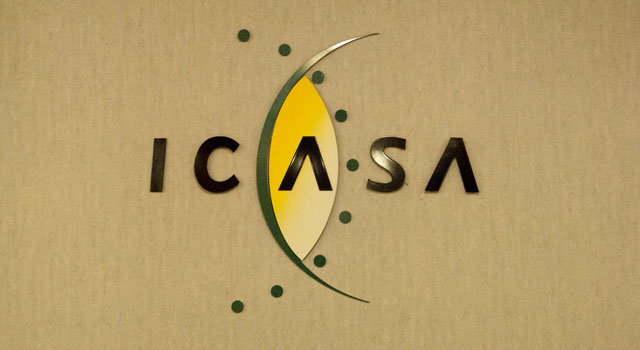
Commercial broadcaster e.tv has raised concerns about the state of television in South Africa, pointing to what it says is the long-term decline of free-to-air TV, especially in the independent commercial free-to-air segment.
“The weakening of free-to-air broadcasting will have a profound impact on the fairness and equality of access to broadcasting,” e.tv CEO Marcel Golding said at the first day of public hearings by communications regulator Icasa into the state of competition in South Africa’s information and communications technology industry.
There has been a decline in the share of households that watch free-to-air channels, said Golding. That this number had dropped from 83% to 63% in seven years (not including viewers who watched these channels on a pay-TV platform).
The broadcaster said that although free-to-air advertising had grown, it had been far outpaced by the growth in advertising on rival MultiChoice’s DStv platform. It quoted figures saying that its advertising revenue had climbed by 5,75% for the period August 2010 to July 2013, while DStv’s had jumped by 21% in the same period.
Golding said Icasa should urgently take steps to protect the viability of the free-to-air sector. He recommended an amendment to the Electronics Communications Act on the must-carry rule that states that free-to-air channels must be carried by satellite or pay-TV operators.
The broadcaster also recommended amendments to the act dealing with pay-TV’s access to advertising revenues and subscription operators’ licence conditions. It said sports broadcasting regulations should be amended and urged Icasa to develop regulations prohibiting pay-TV operators from entering into exclusive agreements with community broadcasters.
It also recommended that regulations be put in place that “mandate access on fair, reasonable and non-discriminatory terms to the set-top boxes of pay-TV operators”.
Regulations should limit the pay-TV window for movie rights to 18 months, making such rights available for free-to-air licensing, said Golding.

“Without proper regulation to achieve these objectives, TV would be driven by purely commercial factors — for example, only providing quality TV to those who can pay the most,” he said. “If we can’t protect our advertising market, our ability to compete becomes very difficult. If we don’t have the rights to broadcast certain sports, our platform becomes very difficult to promote.”
Icasa intends using its research in crafting future regulations and in deciding where to intervene in markets with pro-competitive measures. It will investigate where the bottlenecks are to competition across the telecoms, broadcasting and postal services sectors.
After this week’s hearings are concluded, the authority will produce a draft findings and recommendations document for further public input.
Thereafter, Icasa will make available its final recommendations. It hopes to complete this process by the end of the year, but timing depends on how complicated it gets, said councillor William Currie.
MultiChoice was also scheduled to deliver a presentation to Icasa on Wednesday, but decided not to do so. The SABC, which was also on the programme, will now give its oral input on Friday. — © NewsCentral Media




